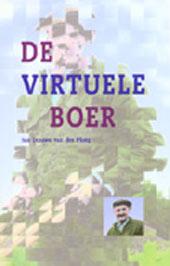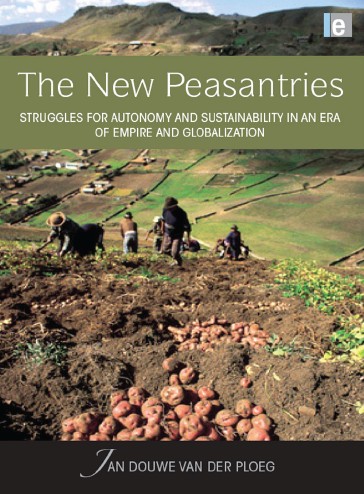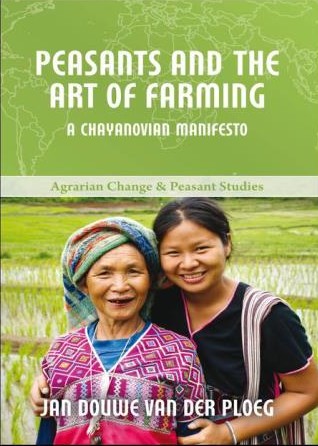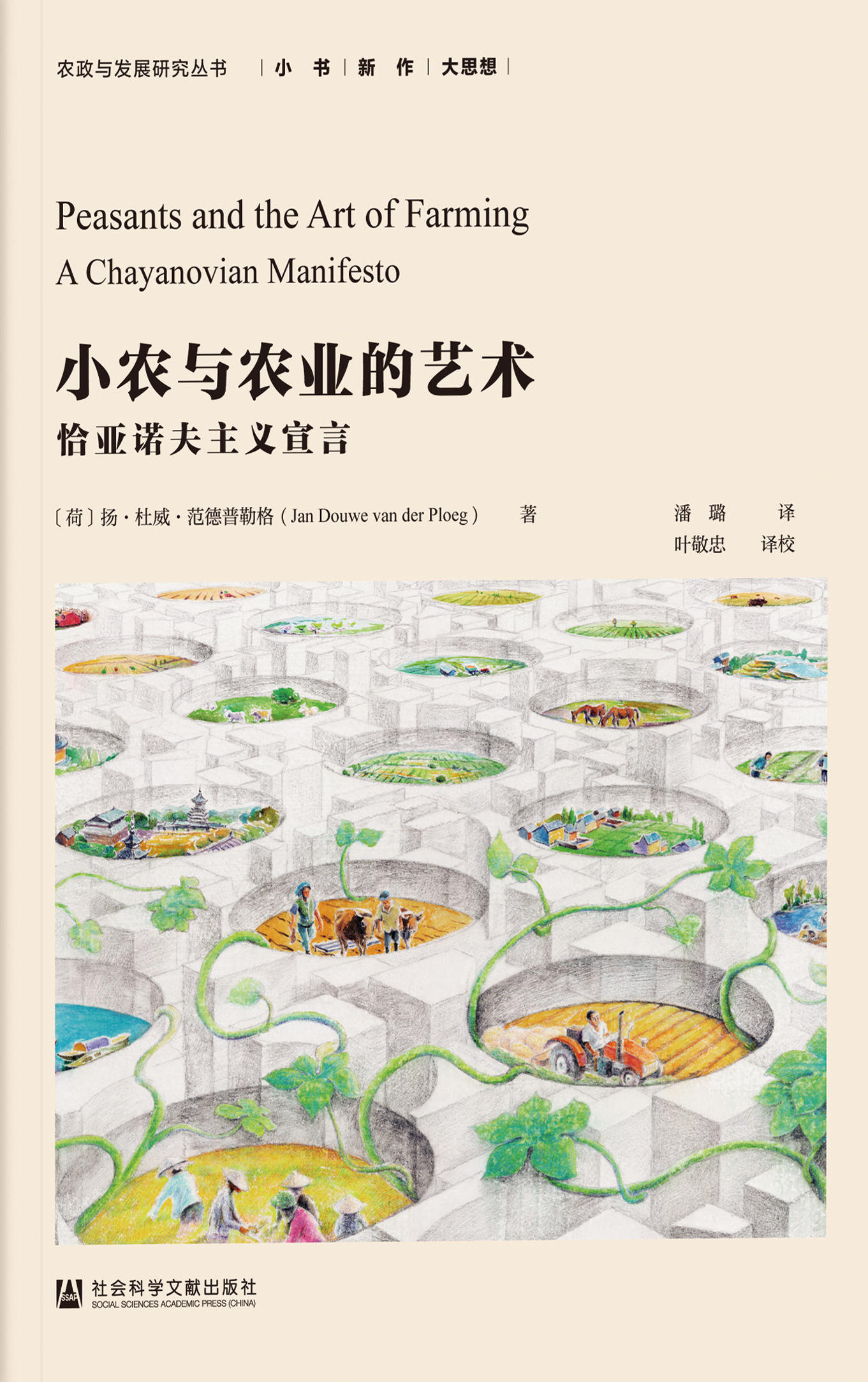by Eric Sabourin in 'La revue du Mauss'
Jan Douwe Van der Ploeg 2008,The New peasantries: struggles for autonomy and sustainability in an era of Empire and Globalization. London, Sterling, Earthscan, 356p.
ISBN 978-1-84407-558-4
Facing the empire of agro-food industry: the peasant principle
The last book of Jan Douwe Van der Ploeg (2008) analyzes the situation, role and significance of the peasantry in an era of globalisation, particularly of agricultural markets and multinational agro-food industries, the new “empires”. The argumentation is based on three longitudinal studies (over 30 years) in Peru, Italy and the Netherlands, which offer an original material of contrasted situations in terms of rural development and evolution of agrarian structures.
The author shows how family agricultures in the North and in the South, confronted with increasing dependence of globalized markets, adopt or update forms of resistance or distantiation to the capitalist production logic.
These various resistance practices characterize, according to the author, a process of repeasantization, including in industrialized European countries where the peasant societies as described by anthropology (Wolf, 1966) or sociology (Mendras, 1976, 2000) have disappeared.
In addition, Ploeg considers that this phenomenon constitutes one of the alternatives to the economic, social, food and ecological crises to which the capitalist globalisation of markets and agricultural production systems inevitably leads.
This repeasantization which, at first sight, seems anachronistic and paradoxical can be explained by several factors. But it is seems important to understand a first paradox: why has this process been ignored by science (pp18-19), as if it were hidden (Martins, 2003) or invisible (Sabourin, 2007a)?
Ploeg suggests several explanations. First, agriculture is increasingly, but “virtually”, assimilated as an economic sector like the others (trade and industry) ignoring the reflexions of Polanyi (1957) on the limits of soil and labour commoditization (p 20).
On the contrary, Ploeg notices that:
- There exist limits to the transition from the peasant mode of farming to the agricultural entrepreneur model because of essential differences (generally denied or ignored) between economic theory and the practices required by the biological - but also social and human - nature of the agricultural activity.
- Fundamental contradictions between these necessary practices and the recent identity of agricultural entrepreneur have led to deviations compared to economic modernization theories;
- The fact that these deviations, interpreted like temporary imperfections, are systematically ignored by theory, has resulted in creating virtual realities and a virtual farmer model (Ploeg, 2003). Thus public policies, designed on “virtual realities” bases, are unable to adapt to concrete situations and not very relevant for farm development.
The second explanation comes from the limits or shortcomings of “peasant studies” (p21) because of:
- the artificial separation between an “underdeveloped” self-subsistence marginal peasant systems and a “developed” entrepreneurial farming system integrated to the capitalist market (and the application of separate theories and concepts) whereas both systems evolve in dynamic interaction and present commonalities;
- the super-valorisation of the peasant society model has led to neglect the study of the practices which are specific of the peasant way of farming (technical, institutional and symbolic systems);
- the focus given to peasant subordination rather than to its capacities of resistance and organization (of agency) in the North as in the South;
- the difficulty of the Marxist analysis just as the neo-classic approach to integrate the modernization capacity of the peasant way of farming adapting to various categories of markets, pluri-activity, valorising multidimensional and multipurpose activities (Losch 2004, Groupe Polanyi, 2008).
- the difficulty of apprehending peasant systems as dynamic processes characterized by heterogeneity and thus, various “degrees of peasantness”. (p 36)
Read whole review: click here (PDF)
Review by Eric Sabourin, originally published in French language in 'La revue du Mauss'
- by Eric Sabourin in 'La revue du Mauss'






NEW
Jan Douwe van der Ploeg
Formerly Professor and Chair of Rural Sociology and Emeritus professor of Transition Studies at Wageningen University (WUR), the Netherlands and Adjunct Professor of Rural Sociology at the College of Humanities and Development Studies (COHD) of China Agricultural University (CAU) in Beijing, China.
e-mail: clic here
Jan Douwe van der Ploeg
Formerly Professor and Chair of Rural Sociology and Emeritus professor of Transition Studies at Wageningen University (WUR), the Netherlands and Adjunct Professor of Rural Sociology at the College of Humanities and Development Studies (COHD) of China Agricultural University (CAU) in Beijing, China.
e-mail: clic here